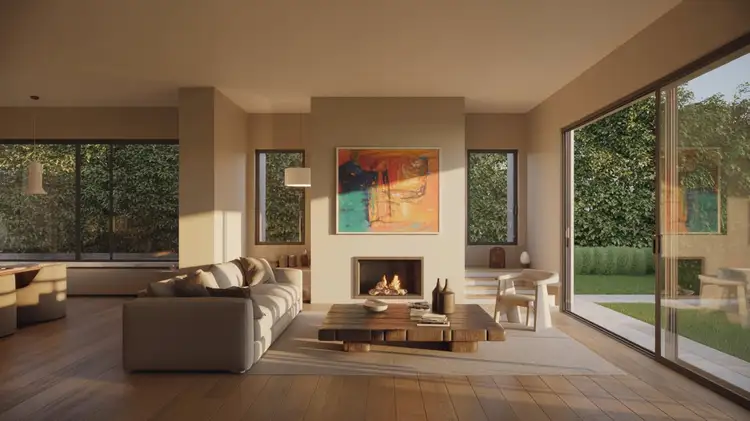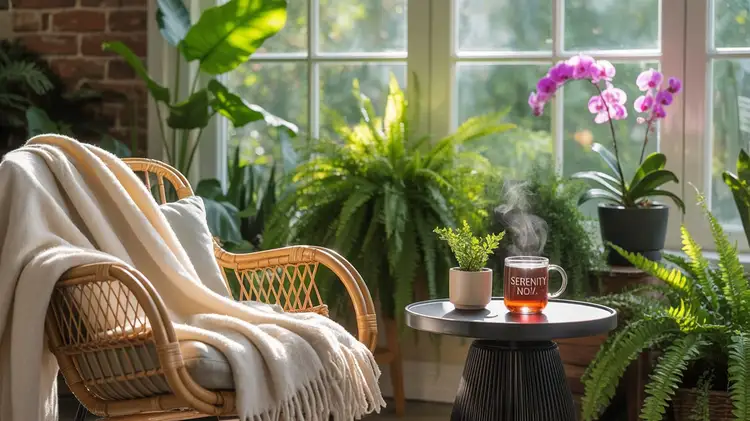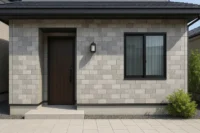Best 800 Sq Ft Home Design Ideas | Space-Saving Tips
Published: 31 May 2025
1. Introduction
1.1 Embracing Compact Living
The modern urban environment demands residents to make full use of their available space. An 800 sq foot property allows homeowners to create practical living areas by implementing strategic design concepts and planning methods.
1.2 Purpose of the Article
The text examines contemporary designing techniques along with space maximization strategies which enable 800 sq ft houses to satisfy current residential needs without sacrificing home comfort and style.
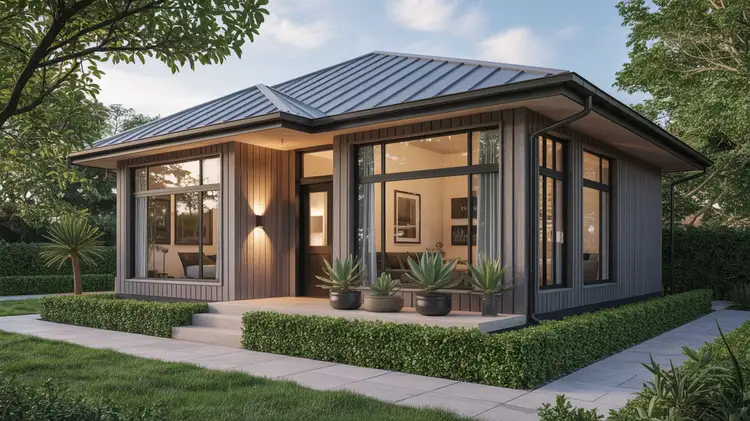
2. Understanding the 800 Sq Ft Layout
2.1 Typical Floor Plans
An 800 square foot house contains living areas combined with kitchen facilities as well as one or two bedrooms with a bathroom included. The effective arrangement of spaces must be a priority because it produces functional environments which avoid congestion.
2.2 Importance of Open Floor Plans
The removal of superfluous walls through open floor plans brings about spaciousness in the living area. The integration of dining space, living space and kitchen space produces an open concept that improves organic light distribution.
Design Idea | Description | Space-Saving Tip |
Open Kitchen-Living Combo | Combines kitchen and living room to save space and enhance openness. | Use a light color palette to make the area feel larger. |
Wall Bed or Murphy Bed | Folds into the wall to free up floor space when not in use. | Add shelving units around the bed for extra function. |
Sliding Room Dividers | Flexible partitions that create privacy without permanent walls. | Opt for frosted glass or wood for stylish separation. |
Built-in Storage Solutions | Maximizes space with custom closets and under-furniture storage. | Incorporate drawers in stairs or under seating areas. |
3. Multifunctional Furniture Solutions
3.1 Sofa Beds and Murphy Beds
The success of compact rooms strongly depends on selecting adaptable furniture pieces. Sofa beds and Murphy beds offer rest areas which free up constant floor space.
3.2 Expandable Dining Tables
Dining tables with expandable mechanisms will extend for social gatherings but contract into the space when no one is using them.
3.3 Storage Ottomans
The functionality of storage ottomans includes a seating area coupled with table functionality while concealing storage space, which enhances their value for small home interiors.
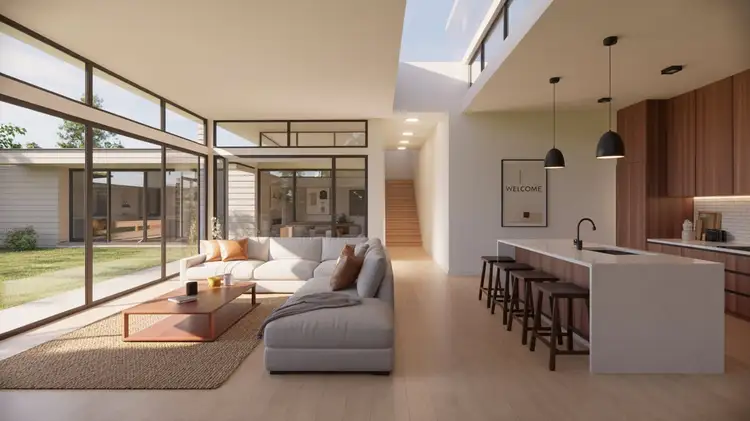
4. Vertical Space Utilization
4.1 Wall-Mounted Shelves
Putting shelves on walls enables you to keep items elevated and clear the floor space simultaneously while enhancing wall appearances.
4.2 Overhead Storage
Overhead storage systems provide the advantage of storage access alongside floor space recovery by keeping less frequently needed items reachable but safely hidden.
4.3 Tall Bookcases
Tall bookcases combine vertical height appeal with extensive bookkeeping capacity for decorative items.
5. Light and Color Schemes
5.1 Light Colors for Walls
Rooms get a wider appearance with more airiness when light-colored walls reflect outside illumination. White and beige tones along with pastels represent the appropriate color choices.
5.2 Strategic Use of Mirrors
The strategic use of mirrors that face windows enhances natural lighting and produces perception of depth in the area.
5.3 Consistent Color Palette
A home should use a single color scheme across all areas to establish unity while stopping spaces from appearing divided in compact areas.
6. Kitchen Design Strategies
6.1 Open Shelving
Kitchen open shelving systems decrease visual weight while letting users easily reach daily-use items.
6.2 Compact Appliances
Using energy-efficient appliances which occupy minimal space lets homeowners save valuable room with no loss in their utility functions.
6.3 Pull-Out Pantry
Narrow spaces become functional storage areas through the implementation of pull-out pantries which store all necessary kitchen items.
7. Bathroom Optimization
7.1 Floating Vanities
Floating vanities serve two purposes through their design, which both maintains beneath storage room and generates visual space enhancements.
7.2 Corner Showers
Bathroom area becomes larger and more spacious when you put in corner showers that save room.
7.3 Over-Toilet Storage
Shelving units which install above toilet seats provide useful storage areas without affecting the floor layout of a room.

8. Bedroom Space-Saving Ideas
8.1 Under-Bed Storage
Placing storage containers under the bed allows belongings to stay orderly while remaining hidden and clearing up room in closets.
8.2 Wall-Mounted Nightstands
Rooms become more modern with minimalistic decor when you install wall-mounted nightstands because they free up space while giving a contemporary appearance.
8.3 Lofted Beds
Building sleeping platforms higher than the floor generates clearance below for creating space which can be used as a seat or working area.
Design Idea | Description | Space-Saving Tip |
Lofted Sleeping Area | Elevates the bed to create space underneath for living or work. | Use ladders or stairs with storage drawers. |
Foldable Dining Table | Expandable tables that fold away when not in use. | Ideal for small kitchens or studio layouts. |
Minimalist Furniture | Simple, clean-lined furniture reduces visual clutter. | Stick to essential pieces with dual functionality. |
Compact Bathroom Layout | Smartly arranged fixtures to optimize tight bathroom spaces. | Use wall-mounted sinks and sliding doors. |
9. Living Room Innovations
9.1 Modular Furniture
The ability to rearrange modular pieces gives small living rooms useful flexibility during different situations.
9.2 Nesting Tables
Nesting tables give additional surface space while keeping space open because they fold away when not needed.
9.3 Built-In Storage
Built-in storage solutions such as shelving and cabinets convert every available space into functional storage without increasing overall size.
10. Outdoor Space Maximization
10.1 Vertical Gardens
Vertical gardens combine greenery features in spaces without occupying floor room to beautify outside areas.
10.2 Foldable Furniture
Seats can be accessed whenever needed by foldable outdoor furniture through easily folding them up and storage becomes possible.
10.3 Multi-Functional Decking
Built-in storage within decking components together with seating functions allows small outdoor spaces to deliver maximum usable area.
11. Smart Home Technology
11.1 Voice-Controlled Devices
The ability to manage electronics through vocal instructions deletes physical control interfaces to clear up spaces.
11.2 Smart Lighting
The smart lighting infrastructure permits users to configure various lighting settings that simultaneously create decorative effects as well as improve usability.
11.3 Automated Climate Control
The automated climate control system both creates comfortable temperature conditions as well as detects user patterns to operate efficiently.
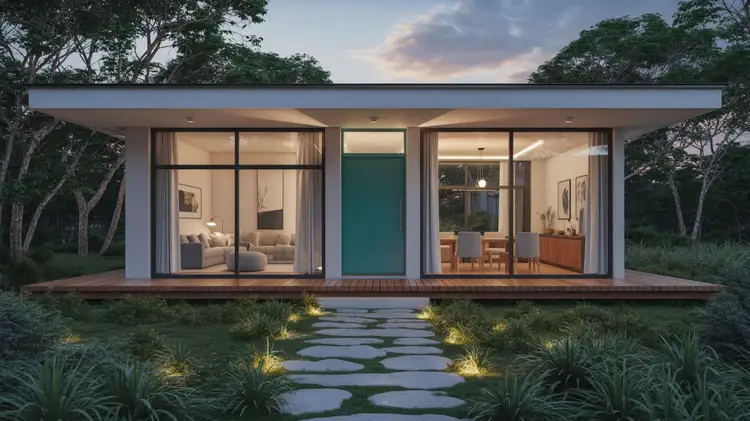
12. Decluttering and Organization
12.1 Minimalist Approach
Taking a minimalist approach to living brings about lower amounts of clutter which results in open and welcoming small spaces.
12.2 Regular Purging
Overseeing possessions on a regular basis enables the disposal of unneeded items which avoids unnecessary buildup while promoting organization.
12.3 Efficient Storage Solutions
Using labeled storage containers and baskets as efficient storage solutions will maintain both ease of access and product organization. Additional vertical storage options work to optimize the available space.
13. Future Trends in Small Home Design
13.1 Multi-Purpose Spaces
Home designers of the future plan to construct flexible spaces which let residents change areas into different uses according to their requirements.
13.2 Sustainable Building Materials
The use of bamboo, recycled wood and low-VOC paints as sustainable building materials will rise as an industry trend for improving indoor air quality.
13.3 Compact Smart Homes
The integration of smart technology will improve small home functionality through automated controls of lighting and climate functions and security features.
13.4 Convertible and Modular Furniture
Furniture which adjusts its shape or uses will continue to evolve with advancements that provide better flexible arrangements for space optimization.
FAQs
To expand the spatial impression of a 800 sq ft home, what critical steps should I follow?
An arrangement of light colors together with mirrors and open room layouts will expand the perceived size of tiny areas.
Storage solutions which work best for small dwellings?
Multifunctional furniture with built-in storage and vertical shelving systems prove to be optimal storage solutions.
Can a 800 sq ft house contain three bedrooms?
A well-planned space design system enables an 800 sq ft house to hold three bedrooms alongside each other.
What furniture works best for small space environments?
In small spaces, modular furniture pieces and pieces that fold and have multiple functions both save room and deliver comfort at the same time.
What are the most suitable methods to enhance lighting in homes measuring less than 800 sq ft?
The combination of natural light with mirrors and correctly placed LED lights helps to improve both brightness and openness in a space.
Is an 800 sq ft home suitable for a family?
The combination of suitable layout designs together with adequate storage tools allows small residences to provide comfortable home spaces for families.
15. Conclusion
The correct application of design principles enables an 800 sq ft home to maintain functional efficiency and elegant design together with comfort capabilities. The use of contemporary furniture alongside functional storage that includes modern aesthetic elements produces a neat contemporary living room design. Excellent living criteria are attainable in small homes by using natural lighting techniques and multi-purpose rooms alongside automated home features.
Small dwelling patterns will move toward sustainable practices that blend contemporary technology for better small space utility. By following careful plans, all compact homes can become spacious, welcoming living areas that function for single people, couples and small family groups.
